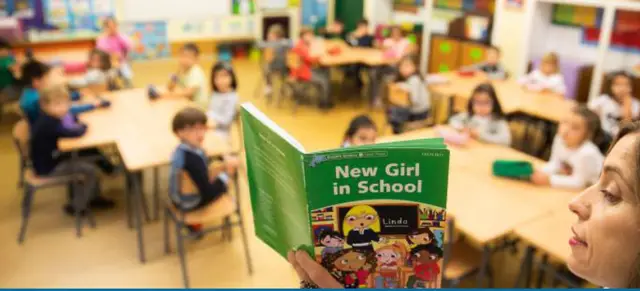It will take almost 2 decades for a very high percentage of students in the state system, when they graduate from high school, to do so speaking English. The level of bilingualism of students in the country would improve from the implementation of the Action Plan 2021-2040, launched by the Ministry of Public Education (MEP), with which the Education Policy for Language Promotion.
This despite the fact that the poor or almost null command of a second language became one of the reasons why Costa Rica is the OECD country with the highest rate of youth unemployment. The lag was also demonstrated in the most recent Linguistic Proficiency tests, in which 64% of the students obtained a “beginner” level.
This deficiency, which has been dragging on for decades, is a trap that deprives students of skills and opportunities inside and outside the country, according to different experts consulted by LA REPÚBLICA, who warn that no more can be expected.
Likewise, a low linguistic command of teachers, few English lessons and limited exposure to the language in daily life, would be some of the reasons why the country has not managed to improve its level. “The lack of English is sadly a phenomenon that has not been given the magnitude and importance it requires. There must be a rethinking of the way it is taught, because it is clear that for almost 3 decades the programs have been the same, and there has been no progress towards what seems to be a dream: a bilingual country”, said Beatriz Ramírez, President of the Association of Private Educational Centers (ACEP).
In this sense, teachers must not only speak English and be certified, but also have to know didactics, and immersion programs are necessary, because there is a difference between language teaching and language teaching, according to Ramírez. “Learning English should start in preschool education and should be continued in primary school, until advanced proficiency is achieved. Secondary education could well be multilingual, as it is in the Nordic European countries and many other countries around the world”, Silvia Castro, President of the Board of Directors of the Latin American University of Science and Technology (Ulacit), pointed out.

On the other hand, the country must define more ambitious goals to increase coverage in schools that teach the English program because, although it is wide, inequalities persist, especially in the most remote areas, detailed the State of Education report.
In addition, it is a priority to provide educational centers with technological infrastructure that facilitates and makes learning processes more attractive. “The results of the English tests last year at the School of Modern Sciences of the University of Costa Rica indicate that only 35% of students in secondary school reach the expected bands B1 and B2, and only 33% in primary school, and already such low results in elementary school is one of the reasons why high school students do not have the expected exit profile” indicated Katherine Barquero, researcher of the report.
EDUCATIONAL POLICY FOR THE PROMOTION OF LANGUAGES
What does this policy contemplate?
• Universalize the mastery of a second language, by expanding the coverage of the educational offer of foreign languages, LESCO, and indigenous languages.
• Provide the teaching community with teaching methods and resources that ensure the learning of a second language.
• Strengthen teacher performance through professional development so that they mediate meaningfully and have advanced language proficiency.
• Generate bilingual environments in educational centers led by the student population, for the use of the language in complementary curricular activities.
• Assess the mastery of foreign languages through processes of diagnosis, progress, location and certification of language skills in the student population.

For those who have experienced shifts in consciousness and know that more peace, joy, and love awaits in a better living environment. A bold shared vision. A living community and hub for innovation. A sustainable ecosystem for living and working. A model for the new future.
